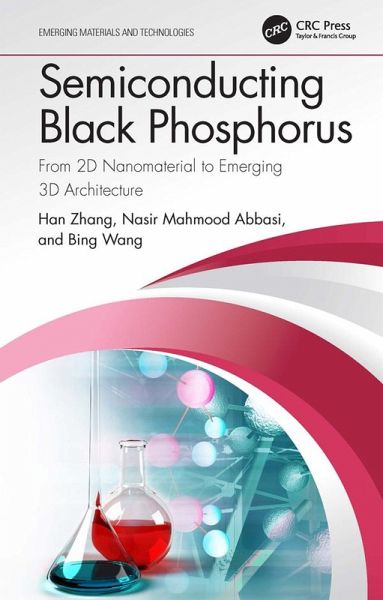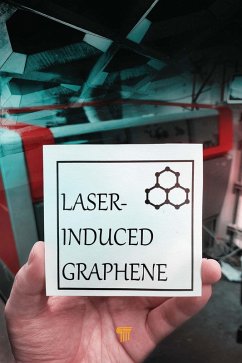
Semiconducting Black Phosphorus (eBook, PDF)
From 2D Nanomaterial to Emerging 3D Architecture
Versandkostenfrei!
Sofort per Download lieferbar
47,95 €
inkl. MwSt.
Weitere Ausgaben:

PAYBACK Punkte
24 °P sammeln!
Black phosphorus (BP)-based two-dimensional (2D) nanomaterials are used as components in practical industrial applications in biomedicine, electronics, and photonics. There is a need to controllably shape engineered scalable structures of 2D BP building blocks, and their assembly/organization is desired for the formation of three-dimensional (3D) forms such as macro and hybrid architectures, as it is expected that these architectures will deliver even better materials performance in applications. Semiconducting Black Phosphorus: From 2D Nanomaterial to Emerging 3D Architecture provides an over...
Black phosphorus (BP)-based two-dimensional (2D) nanomaterials are used as components in practical industrial applications in biomedicine, electronics, and photonics. There is a need to controllably shape engineered scalable structures of 2D BP building blocks, and their assembly/organization is desired for the formation of three-dimensional (3D) forms such as macro and hybrid architectures, as it is expected that these architectures will deliver even better materials performance in applications. Semiconducting Black Phosphorus: From 2D Nanomaterial to Emerging 3D Architecture provides an overview of the various synthetic strategies for 2D BP single-layer nanomaterials, their scalable synthesis, properties, and assemblies into 3D architecture. The book
covers defect engineering and physical properties of black phosphorous;
describes different strategies for the development of 2D nanostructures of BP with other species such as polymers, organic molecules, and other inorganic materials;
offers a comparative study of 3D BP structures with other 3D architectures such as dichalcogenides (TMDs, graphene, and boron nitride); and
discusses in detail applications of 3D macrostructures of BP in various fields such as energy, biomedical, and catalysis.
This is an essential reference for researchers and advanced students in materials science and chemical, optoelectronic, and electrical engineering.
covers defect engineering and physical properties of black phosphorous;
describes different strategies for the development of 2D nanostructures of BP with other species such as polymers, organic molecules, and other inorganic materials;
offers a comparative study of 3D BP structures with other 3D architectures such as dichalcogenides (TMDs, graphene, and boron nitride); and
discusses in detail applications of 3D macrostructures of BP in various fields such as energy, biomedical, and catalysis.
This is an essential reference for researchers and advanced students in materials science and chemical, optoelectronic, and electrical engineering.
Dieser Download kann aus rechtlichen Gründen nur mit Rechnungsadresse in A, B, BG, CY, CZ, D, DK, EW, E, FIN, F, GR, HR, H, IRL, I, LT, L, LR, M, NL, PL, P, R, S, SLO, SK ausgeliefert werden.













